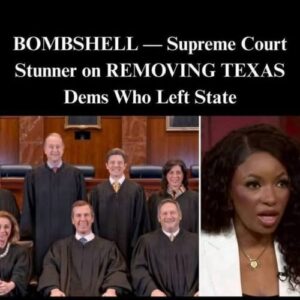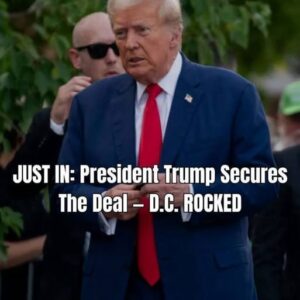Former FBI Director Christopher Wray is reportedly facing a federal investigation over allegations of obstruction of justice, false statements, and mishandling of classified materials — accusations that, if proven, could mark one of the most significant scandals in recent Bureau history.
According to a report from The Wall Street Journal, federal prosecutors have issued subpoenas to several former senior FBI officials who served during Wray’s tenure, signaling that the inquiry has moved into an advanced phase.
The probe, reportedly led by the U.S. Attorney’s Office for the Western District of Virginia, focuses on Wray’s handling of politically sensitive investigations, including the Durham inquiry into the origins of the Trump–Russia probe and the FBI’s management of election-related intelligence.
Focus of the Investigation
Prosecutors are said to be examining whether Wray and his subordinates concealed or destroyed key evidence tied to the Durham investigation — the special counsel probe launched to uncover misconduct within the intelligence community’s handling of the Trump–Russia narrative.
Investigators have reportedly interviewed multiple current and former FBI staff members who worked on the seventh floor of FBI headquarters, where senior leadership offices are located.
One central line of inquiry involves the alleged use of “burn bags” — containers designed for destroying sensitive documents — which may have been used to dispose of materials connected to the Durham case.
According to CNN, investigators are seeking to determine whether any classified evidence or internal memos were improperly destroyed or withheld from oversight officials, potentially violating federal records laws.
“The fact that they’re looking at burn bag logs and seventh-floor activity shows how serious this has become,” said one former Justice Department official familiar with the matter. “If true, it could represent a deliberate effort to obstruct an ongoing investigation.”
Subpoenas and Expanding Scope
The Journal report suggests that the investigation has widened in recent weeks, with new subpoenas targeting former intelligence and law enforcement leaders, including former CIA Director John Brennan.
Brennan, like Wray, was a central figure in the intelligence community’s approach to politically sensitive matters during and after the Trump presidency.
“The inquiry has already drawn in individuals connected to the upper levels of both the FBI and CIA,” the report said, citing an unnamed source with direct knowledge.
The probe reportedly involves multiple federal prosecutors, signaling coordination between various Justice Department divisions. Officials are said to be exploring whether internal communications between the FBI and CIA misrepresented intelligence findings during the 2016–2020 period and whether those actions continued under Wray’s leadership.
Election Testimony Under Scrutiny
The investigation reportedly includes a review of Wray’s public and congressional testimony about election integrity.
In 2020 and 2021, Wray told lawmakers that the FBI had found “no evidence of a coordinated national effort” to commit voter fraud or interfere with the election process.
However, recently declassified intelligence documents — released by current FBI Director Kash Patel — appear to contradict those statements.
According to the declassified report, the FBI possessed evidence that the Chinese government had mass-produced counterfeit U.S. driver’s licenses prior to the 2020 election. The report suggested those IDs were intended to facilitate mail-in ballot fraud in favor of then-candidate Joe Biden.
If confirmed, those findings could imply that Wray withheld material intelligence from both Congress and the public.
“Misleading Congress about classified election-related intelligence could rise to the level of perjury or obstruction,” said retired federal prosecutor Thomas Baker. “It’s a very serious matter if the allegations bear out.”
Handling of the “Richmond Product”
Investigators are also examining Wray’s testimony regarding the so-called “Richmond product” — a 2023 internal FBI intelligence memorandum that described certain traditional Catholic communities as potential extremist threats.
The memo, which was widely criticized after being leaked to the media, appeared to conflate religious observance with political extremism. Wray later testified that the document was “inconsistent with FBI standards” and that it was “promptly withdrawn.”
However, whistleblower accounts and internal emails released by congressional committees suggest the directive may have been circulated more widely than the Bureau initially acknowledged, raising questions about whether Wray’s statements were accurate.
“Evidence suggests the memo wasn’t an isolated incident but part of a broader pattern of political bias in intelligence assessments,” said a senior congressional aide familiar with the inquiry.
Political and Legal Fallout
The potential implications of the investigation are far-reaching. Wray, who served as FBI Director from 2017 until his resignation earlier this year, had already faced criticism from both sides of the political aisle — accused by conservatives of protecting political allies and by progressives of insufficient oversight.
Now, with subpoenas issued and new witnesses being interviewed, the inquiry could reshape public perceptions of the FBI’s independence.
“This is not a routine internal review,” said legal analyst Rebecca Lawson. “It’s a full-scale criminal investigation into the former head of the Bureau — and that’s unprecedented in modern U.S. history.”
Congressional Oversight Intensifies
Members of Congress have responded swiftly to the reports. Representative Jim Jordan (R-OH), chair of the House Judiciary Committee, announced that his panel would seek to obtain all related communications between the FBI, the Department of Justice, and the CIA regarding document retention policies during Wray’s tenure.
Meanwhile, Senate Intelligence Committee members have quietly begun briefings with current FBI leadership about the agency’s internal procedures for classified material storage and destruction.
Senator Chuck Grassley (R-IA), a longtime advocate for government transparency, stated, “If the FBI Director knowingly destroyed evidence or misled Congress, that’s not just misconduct — that’s criminal.”
No Public Comment from Wray
As of now, Wray has not issued a public statement addressing the reports. A spokesperson for his legal team declined to comment, citing the ongoing nature of the investigation.
The FBI also declined to confirm or deny the existence of the inquiry, issuing a brief statement reiterating the Bureau’s “commitment to transparency and accountability.”
Current Director Kash Patel, who succeeded Wray earlier this year, reportedly ordered an internal review into document retention practices and the handling of politically sensitive cases.
Broader Implications for the Justice System
The Wray investigation comes amid a broader reckoning inside federal law enforcement over politicization, accountability, and transparency.
For years, both Democratic and Republican officials have accused the FBI of selective enforcement — either protecting allies or targeting political opponents.
“If it turns out that leadership figures were manipulating investigations or destroying records, it would validate long-standing concerns about bias at the top,” said former FBI special agent Jeffrey Danforth. “That’s why this investigation matters — not just for Wray, but for the institution as a whole.”
What Comes Next
Legal experts say that the next several months will be critical. If prosecutors gather sufficient evidence, they could pursue criminal charges or a referral to a special counsel, depending on the findings.
Meanwhile, the House Judiciary and Oversight Committees are expected to hold hearings later this fall to question current and former Bureau officials about their roles in the handling of classified evidence.
Regardless of the outcome, the inquiry into Christopher Wray marks another pivotal moment in the ongoing debate over the integrity of U.S. intelligence agencies and their role in the nation’s political landscape.





